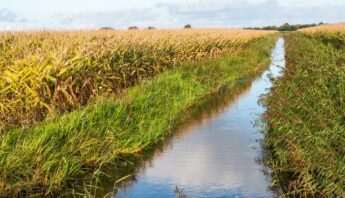Pesticide giant Syngenta kicked off 2013 by writing checks to communities whose water supplies have been contaminated with their endocrine-disrupting herbicide, atrazine.
According to the Associated Press, the money will go to community water systems that serve more than 37 million Americans in all, mostly in farming states — including Illinois, Iowa, Indiana, Kansas, Missouri and Ohio — where atrazine has been commonly used to control weeds in corn fields.
The settlement payouts — totaling $105 million — resolve the 2010 class action lawsuit City of Greenville v. Syngenta Crop Protection, and repay some of the costs to communities of filtering atrazine out of water supplies for years.
Though they agreed to the settlement, Syngenta denied wrong-doing and stands firmly by their product. The science, however, is very clear: even small amounts of atrazine can be harmful to people's health. Lead counsel Stephen M. Tillery summed up the issue in a statement:
“Science has been fighting an uphill battle against giant pesticide manufacturers like Syngenta who claim that a little weed killer in your drinking water won’t hurt you. Independent scientists now believe that even trace amounts can harm you and your children for generations to come.”
Cities and towns dealing with atrazine contamination are expressing relief at having at least a small amount of funding from the chemical corporation to help filter out the health-harming pesticide. Payouts range from $5,000 up to $3.1 million.
Infiltrating groundwater
There's more work to be done to protect communities from atrazine exposure. It is found more often than any other pesticide in U.S. groundwater, and is one of the most widely used pesticides in the U.S. and the world. More than 76 million pounds are used in this country each year — mostly on corn fields. Smaller amounts are used on other crops too, from sugarcane to cauliflower to Christmas trees.
Take Action » Join us to build the groundswell needed to shine the light on the science on atrazine. It's time to shift gears and keep Syngenta with their feet to the fire — rather than their fingers pulling the strings.







